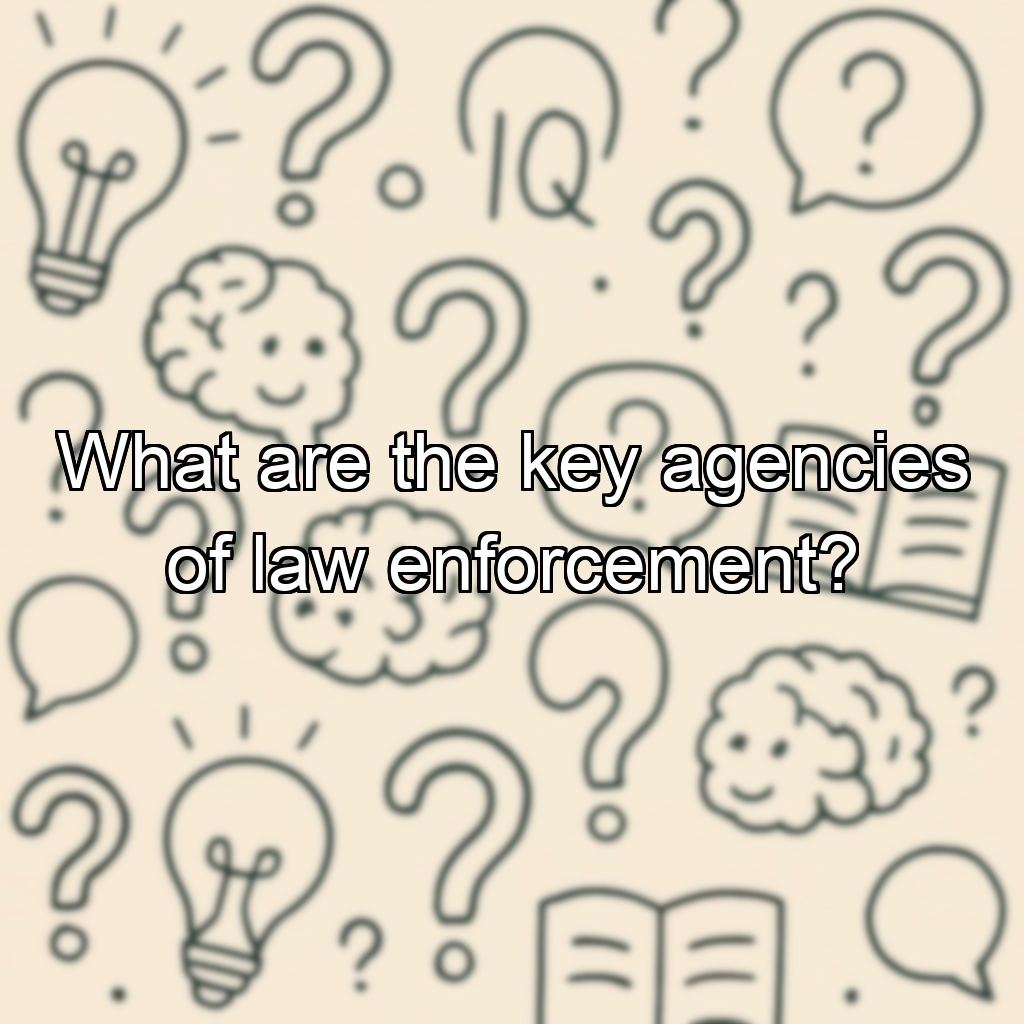What are the key agencies of law enforcement?

Key Agencies of Law Enforcement
Law enforcement agencies are organizations responsible for maintaining public order, enforcing laws, and preventing and investigating crimes. The key agencies vary by country, but generally include federal, state, and local levels, each with specific jurisdictions and responsibilities.
Federal Agencies
- Federal Bureau of Investigation (FBI): The primary federal agency responsible for investigating federal crimes, counterterrorism, counterintelligence, and cybercrime in the United States.
- Drug Enforcement Administration (DEA): Focuses on enforcing drug laws and combating drug trafficking and abuse.
- U.S. Marshals Service: Responsible for apprehending fugitives, providing security for the federal judiciary, and managing federal prisoner transportation.
- Customs and Border Protection (CBP): Enforces laws related to customs, immigration, and border security.
- Immigration and Customs Enforcement (ICE): Enforces immigration laws and investigates customs violations and immigration crimes.
State Agencies
- State Police/Highway Patrol: Enforce traffic laws, assist local agencies, and handle state-wide criminal investigations.
- State Investigation Bureaus: Conduct investigations into more complex crimes such as fraud, homicide, and organized crime.
Local Agencies
- City Police Departments: Enforce laws within city limits, investigate crimes, and maintain public order.
- County Sheriff's Offices: Provide law enforcement services across counties, manage jails, and serve legal documents.
Other Specialized Agencies
- Transit Police: Maintain security on public transportation systems.
- School Police: Provide security and enforce laws within educational institutions.
Each agency plays a vital role in the broader framework of law enforcement, working collaboratively to ensure public safety and uphold the rule of law.